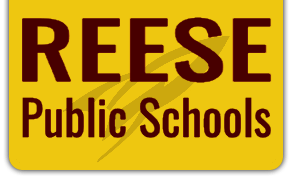SERIES 5000: STUDENTS, CURRICULUM, AND ACADEMIC MATTERS
5700 Student Health and Safety
5705 Emergency Anaphylaxis
Anaphylaxis is a severe and life-threatening allergic reaction. Anaphylaxis may occur within minutes or longer after exposure to an allergen. The most common causes of anaphylaxis are food, insect bites or stings, medications, and latex.
The symptoms of anaphylaxis may vary from person to person and may change over time. Reported symptoms include skin reactions, a feeling of warmth, constriction of the airway, a swollen tongue or throat, wheezing, trouble breathing, weak or rapid pulse, nausea, vomiting, diarrhea, dizziness, or fainting.
A. Emergency Preparedness
1.The Superintendent or designee must obtain a prescription in the name of the Board for auto-injectable epinephrine as authorized and required by this Policy and applicable law.
Each school operated by the District must maintain at least 2 epinephrine auto-injector devices at all times, regardless of whether any student or employee has been diagnosed with allergies.
2. The epinephrine auto-injectors maintained by the school may only be used by:
a. a licensed registered professional nurse who is employed or contracted by the District; or
b. an authorized employee trained in the appropriate use of an epinephrine auto-injector.
3. The Superintendent or designee will determine, after consulting a licensed registered professional nurse or other health care provider, the appropriate dose(s) of auto-injectable epinephrine (e.g., Junior or Adult) to be maintained at each school.
4. Epinephrine auto-injectors maintained by the District will be stored according to the manufacturer’s directions, at the appropriate temperature, and in a clearly labeled and unlocked container easily accessible to authorized personnel.
5. A licensed registered professional nurse who is employed or contracted by the District, or an authorized school employee who is trained in the appropriate use of an epinephrine auto-injector under this Policy, may possess and administer epinephrine by auto-injector to:
a. a student who has a prescription on file at the school; or
b. any person on school grounds who is believed to be having an anaphylactic reaction.
6. The Superintendent or designee will:
a. ensure that each school building with an instructional and administrative staff of at least 10 has at least 2 employees who have been trained in the appropriate use of an epinephrine auto-injector; and
b. ensure that each school building with an instructional and administrative staff of fewer than 10 has at least 1 employee who has been trained in the appropriate use of an epinephrine auto-injector
7. For purposes of this Policy, “trained in the appropriate use of an epinephrine auto-injector” means completing training in compliance with the Training Guidelines for Designated Staff on Allergies, Anaphylaxis, and Emergency Responses issued by MDE, conducted under the supervision of, and evaluated by, a licensed registered professional nurse.
The Superintendent or designee must maintain documentation of training completed by each employee authorized to administer an epinephrine autoinjector.
B. Notice and Reporting
The Superintendent or designee will:
1. promptly notify the parent/guardian of a student to whom epinephrine has been administered and document all actual and attempted notices; and
2. at least annually report to MDE, as prescribed by MDE, all epinephrine administration to students at school.
C. Student Possession and Use
This Policy does not alter the rights of students authorized by law to self-possess or self-administer medication, including epinephrine, or any rights of students with disabilities under state or federal law.
Legal authority: MCL 380.1178, 380.1179, 380.1179a; MCL 333.17744a
Date adopted: 08/09/2021
Date revised:


